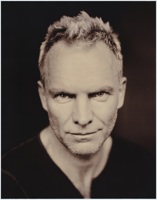Social Science on Trial in Tehran (Source: Chronicle of Higher Education)
Professor Charles Kurzman has published the account “Reading Weber in Tehran” on the persecution of social scientists in Iran, particularly those who participate in and study civil society and the public sphere:
“An unlikely suspect was fingered at the recent show trials of Iranian dissidents: Max Weber, whose ideas on rational authority were blamed for fomenting a “velvet revolution” against the Islamic Republic. “Theories of the human sciences contain ideological weapons that can be converted into strategies and tactics and mustered against the country’s official ideology,” Saeed Hajjarian, a leading strategist in the Iranian reform movement, explained in his forced confession.
A political scientist by training, Hajjarian “admitted” that Weber’s notion of patrimonial government wasn’t applicable to Iran. The theory, Hajjarian declared, is relevant only in countries where “people are treated as subjects and deprived of all citizenship rights,” which is “completely incompatible with and unrelated to current conditions in Iran.”
Hajjarian’s coerced denunciation of Weber is ludicrous but unsurprising. Since the disputed presidential elections of June 12, the hard-line government in Tehran has started a broad campaign against social scientists. This crackdown is not altogether new. Over the past decade, one or two prominent social scientists have been arrested each year for supposedly plotting against the state. Those scholars were typically detained for several months and then released after making videotaped “confessions.” This year, however, after the surprisingly popular presidential campaign of Mir Hussein Moussavi, and widespread protests over the official results, the number of social scientists in Iranian prisons has multiplied. At least a dozen sociologists, political scientists, and economists were put on trial, and many more have been named in court as unindicted co-conspirators…
Khamenei portrayed professors as “commanders” on the front lines of “soft warfare”—the term that hard-liners in Iran use to describe Western efforts to sway and organize Iranian youth. Professors, he suggested, have a responsibility to teach their students to avoid Western influences, and limit their “specialized discussions” in the social sciences to “qualified persons within safe environments.” To do otherwise, Khamenei said, risked “damaging the social environment.”
Such rhetoric has fueled calls for a purge of the universities, with special scrutiny on the social sciences. “The human sciences should not be taught in the Western style in the country’s universities,” Ayatollah Mohammad Emami-Kashani, a senior member of Iran’s Assembly of Experts, declared in a nationally televised sermon in September.
Max Weber is not alone in being blamed for the unrest in Iran. Other social theorists, like Jürgen Habermas, John Keane, Talcott Parsons, Richard Rorty, and unspecified feminists and poststructuralists have also been accused of “threatening national security and shaking the pillars of economic development.”
What links this group of scholars, it appears, is their belief that an independent civil society, beyond the reach of the state, is necessary for the development of democracy and human rights. This view is particularly pronounced in Habermas’s concept of the public sphere: free spaces for the exchange of ideas among autonomous institutions and individuals. Where the public sphere is weak, society is vulnerable to domination by the state—a concern that Habermas borrowed from Weber…
Iranian social scientists are being harassed and imprisoned both for their participation in the public sphere and for their study of the public sphere. The Iranian government’s goal, it seems, is to undermine not only the institutions of civil society, but the very idea of it.”
 Sting makes appeal for Kian Tajbakhsh and Iranian detainees.
Sting makes appeal for Kian Tajbakhsh and Iranian detainees.